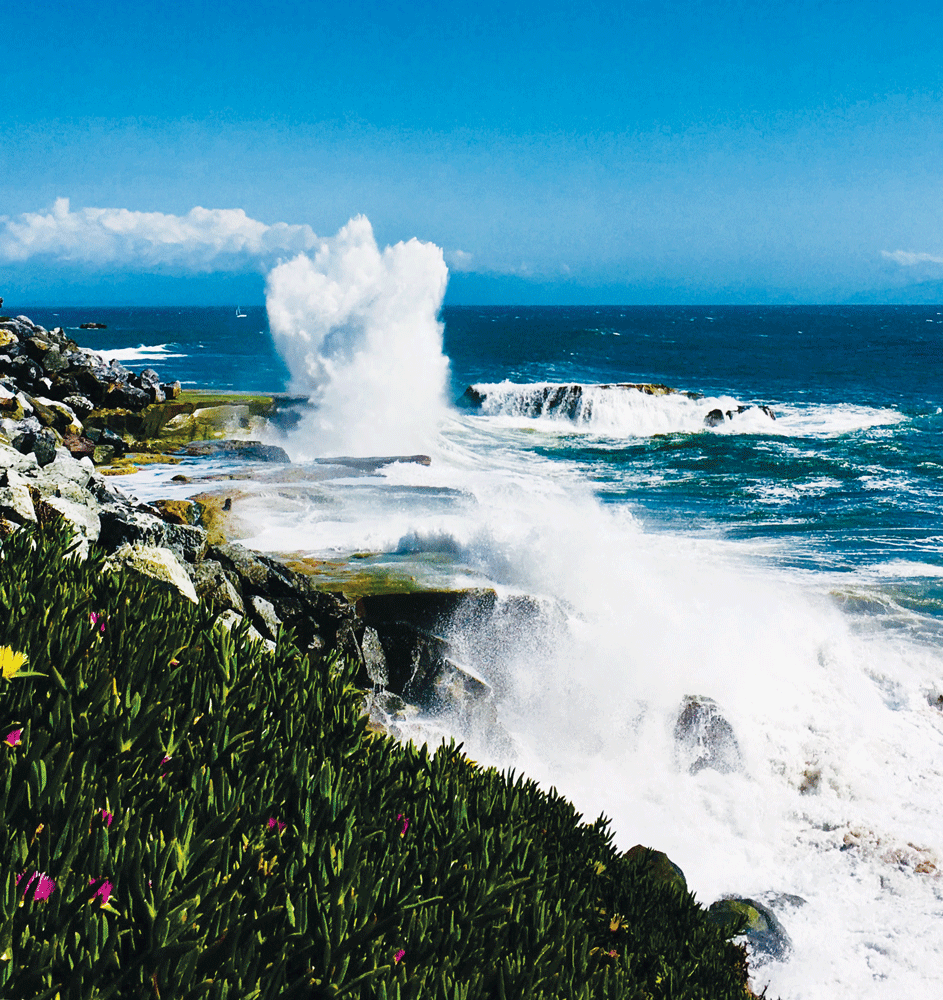EDITOR’S NOTE

Working at a community newspaper that focuses as much as possible on local news, it’s always interesting when a story in Santa Cruz County offers a new or different perspective on an issue that’s being talked about at a national or even international level.
Sometimes a local story reveals an issue that should be discussed at a national or international level, but isn’t—and that’s the case this week.
It all started when a reader called the office to tell Georgia Johnson that the man she’d just bought cigars from in Midtown had an interesting life story that GT might be interested in writing about. That tipster was right—a former translator for the U.S. Special Forces in Afghanistan, Sayed Nadim Hashimi does indeed have a remarkable story—but I doubt she could have suspected that her call would lead to this eye-opening exploration of the issues that translators face after they’re done with their service.
It’s a prime example of why we love tips from readers; they are the starting point for some of our most important stories. I hope you enjoy this one.
LETTERS TO THE EDITOR
Read the latest letters to the editor here.
SHAKE UP THE PROCESS
Thanks to Jacob Pierce and the Good Times for covering the recent Santa Cruz City Council conflicts between progressives and moderates over agenda-setting and issues (GT, 3/13). I also thank all council members for their largely thankless, sparsely paid toil on our many urgent city issues.
Without repeating the details of the situation, I have suggestions to improve it.
Rather than focusing on accused wrongdoing and political labels, I’d like the council to cooperate, and to resolve their differences and address those issues that affect us all so deeply.
A major part of the controversy is the currently established (but not legally required) process of agenda setting by only the mayor and city staff—an undemocratic and inefficient way of dealing with the enormous job of setting a city government’s priorities. One solution would be to replace that protocol with a rotating three-member city council group, changing composition each meeting, determined by lot and not by rank such as mayor or vice mayor. That group would meet with staff to compose an agenda with all items requested by council members, possibly rationing times for each and all items so as to include all of the city business we have elected them to deal with. Other democratic solutions could be proposed as well as this one.
In order to put contention behind and effectively conduct business, all council members, including mayor and vice mayor, need to learn how to work together, as does any group with tasks. I suggest they set time apart from council business meetings to consult with expert facilitators in both group and meeting process and in how to reach out to each other to reconcile their personal and political differences. Most call this a retreat; if a full-scale retreat is not immediately possible, reconciliation may be done on a smaller scale. For example, the council members can meet with each other in pairs, or in groups less than four (in order not to violate the Brown Act prohibition on elected government bodies meeting in secret in quorums).
For our collective and individual sake, I think most of us, and the council members themselves, prefer that they solve these problems rather than continue them. I invite the public to support our council in finding creative solutions to an apparent but unnecessary showdown.
Carol Long
Santa Cruz
For the Birds
A recent story in Good Times (2/26) suggested that “there has been sort of a sea change in recent years with offshore-wind farms, as the graver existential issue of global climate catastrophe has trumped concerns about pelicans flying into windmill blades.” Are we really no longer concerned about pelicans?
Prominent environmental groups want wind energy development off the shores of California to happen “the right way.” But, what is the right way?
At American Bird Conservancy (ABC), we advocate for “Bird-Smart Wind Energy,” which means finding locations for turbines away from high-bird-collision-risk areas; conducting independent, transparent pre-and-post-construction monitoring; executing effective mitigation by wind energy facilities to minimize bird mortality; and providing compensation for the loss of protected birds. ABC recommended this strategy in our comments to the task force for California offshore wind.
We can combat climate change through responsible renewable energy development off the coast of California, while protecting pelicans and other marine birds and wildlife from potential harm. ABC is partnering with other environmental organizations and developers to ensure that offshore wind facilities and healthy marine bird populations can co-exist.
The future for California’s birds depends on responsible energy developers and regulators following Bird-Smart principles. Developers have already acknowledged that the benefits of wind energy need to outweigh its costs. They set a precedent by offering funds to offset impacts to the Morro Bay commercial fishing community. Now’s the time to think about something similar for birds.
HANNAH NEVINS & HOLLY GOYERT | AMERICAN BIRD CONSERVANCY
Corrections
Corrections from our Best of Santa Cruz 2019 issue: Alderwood’s daily happy hour is 4-5:30 p.m., with late-night happy hour available Friday and Saturday nights only. Regarding Alderwood’s corkage policy, the first two bottles are complimentary; after that, the corkage fee is $25 per bottle. Also, Oswald no longer serves abalone. Finally, the correct address of Connoisseur is 111#D Dubois St., Santa Cruz. We regret the errors.
PHOTO CONTEST WINNER

Submit to ph****@go*******.sc. Include information (location, etc.) and your name. Photos may be cropped. Preferably, photos should be 4 inches by 4 inches and minimum 250dpi.
GOOD IDEA
The recent “Saving Democracy” forum has been released on the podcast “Dastardly Cleverness in the Service of Good.” Dan Schnurr, a politics professor at USC and UC Berkeley, implored audience members to remember that “there’s a difference between being evil and being merely incorrect—and realizing that the person we’re disagreeing with isn’t stupid or evil.” He said we should remember that our opponents are concerned about the same issues we are.
GOOD WORK
The Santa Cruz Museum of Natural History has been hanging its Art of Nature exhibit, with its full unveiling set for First Friday on April 5. The show, now in its 30th year, features work from more than 30 Bay Area artists. There will be live artist demonstrations and free admission both this Friday and Friday, May 3, from 5-7 p.m. The show features everything from watercolors of fungi and herbs to highly detailed depictions of insects and colorful crustaceans.
QUOTE OF THE WEEK
“The term ‘jumbo shrimp’ has always amazed me. What is a jumbo shrimp? I mean, it’s like ‘military intelligence’–the words don’t go together, man.”
-George Carlin














